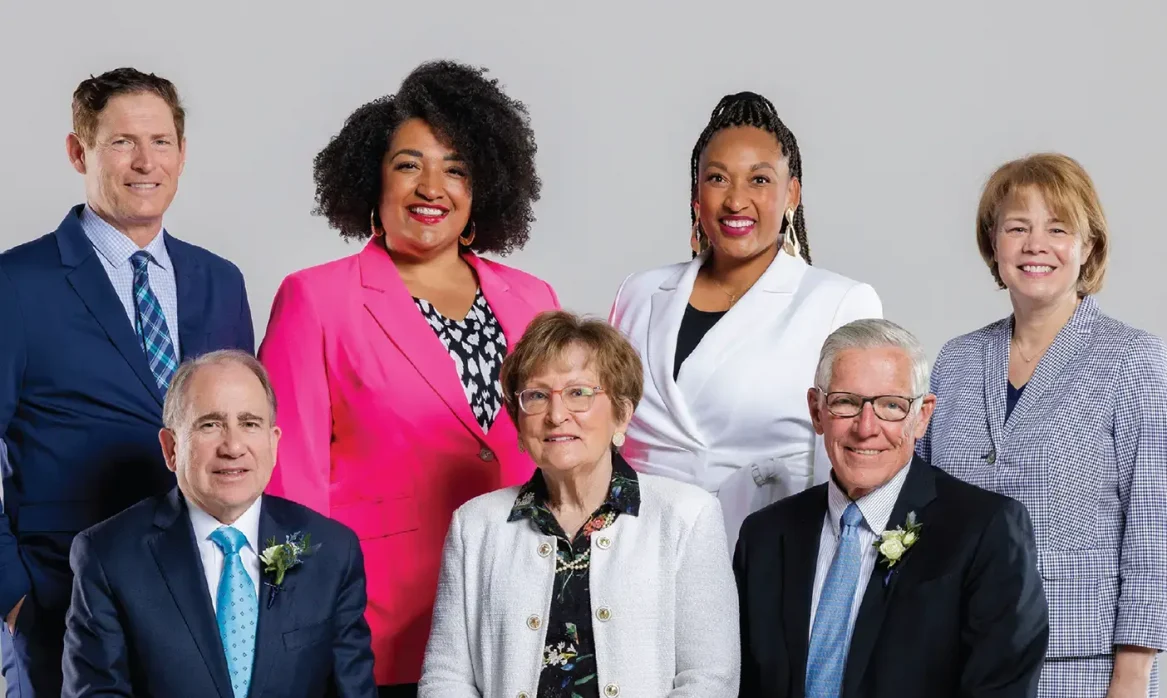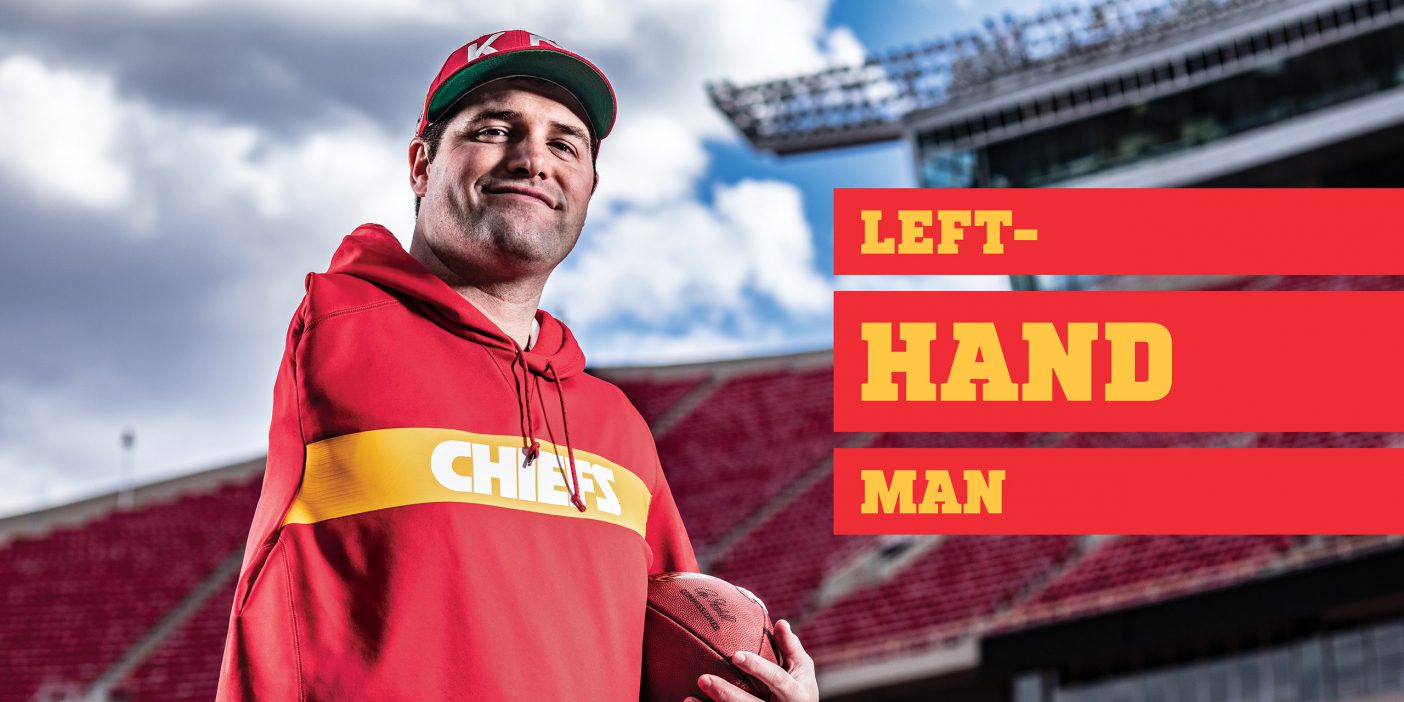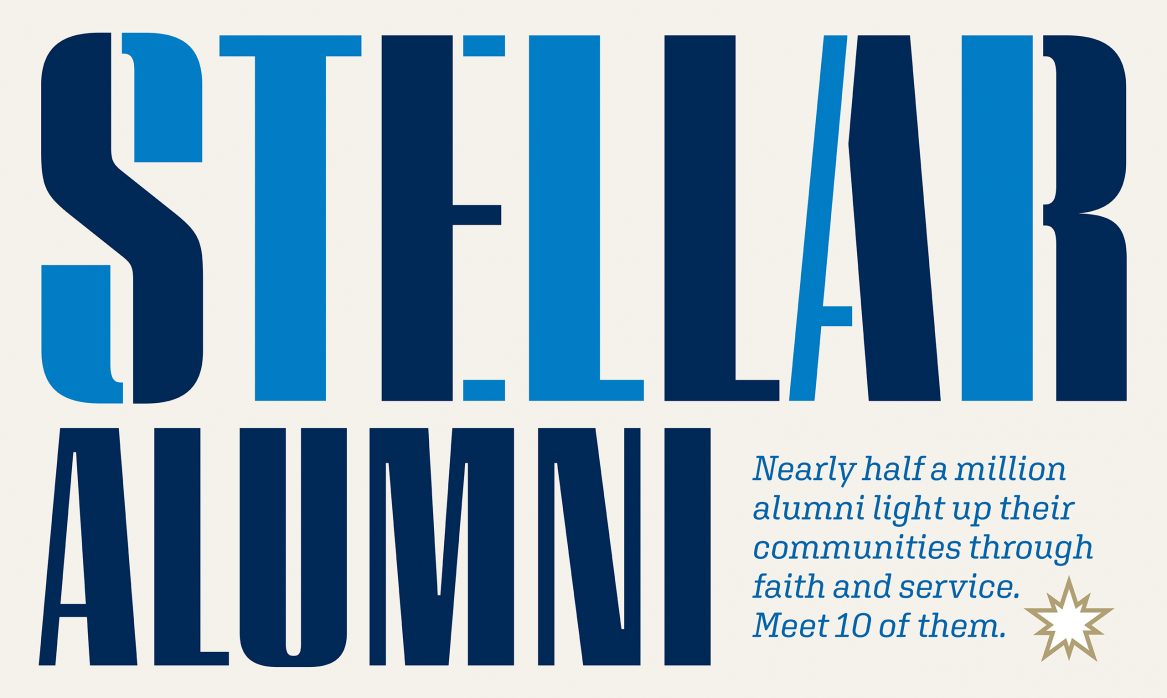The 2025 BYU Distinguished Alumni Award recipients share foundational stories from their lives.
In March 2025 BYU honored five individuals for their dedicated service to their profession, community, nation, The Church of Jesus Christ of Latter-day Saints, or Brigham Young University. Here the recipients of the 2025 Distinguished Alumni and Honorary Alumni Awards share stories of meaningful mentors and formative experiences from their lives.
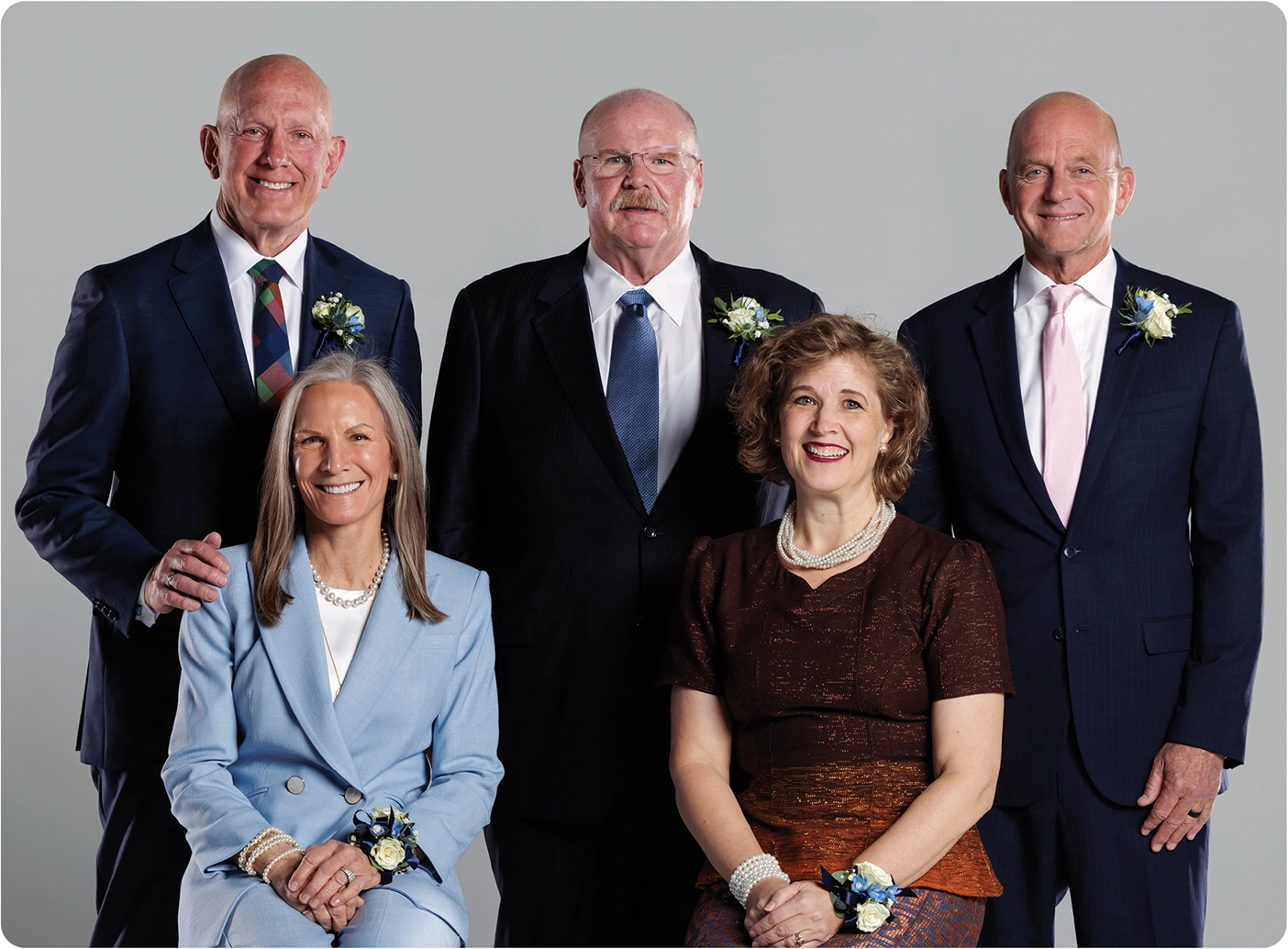
J. Stephen “Riz” (BA ’92) and Marilyn Berg Rizley (BA ’77) • Chairs of the Jesse and Amanda Knight Society and former leaders of the Ukraine L’viv Mission and Nauvoo Historic Sites
Marilyn Rizley
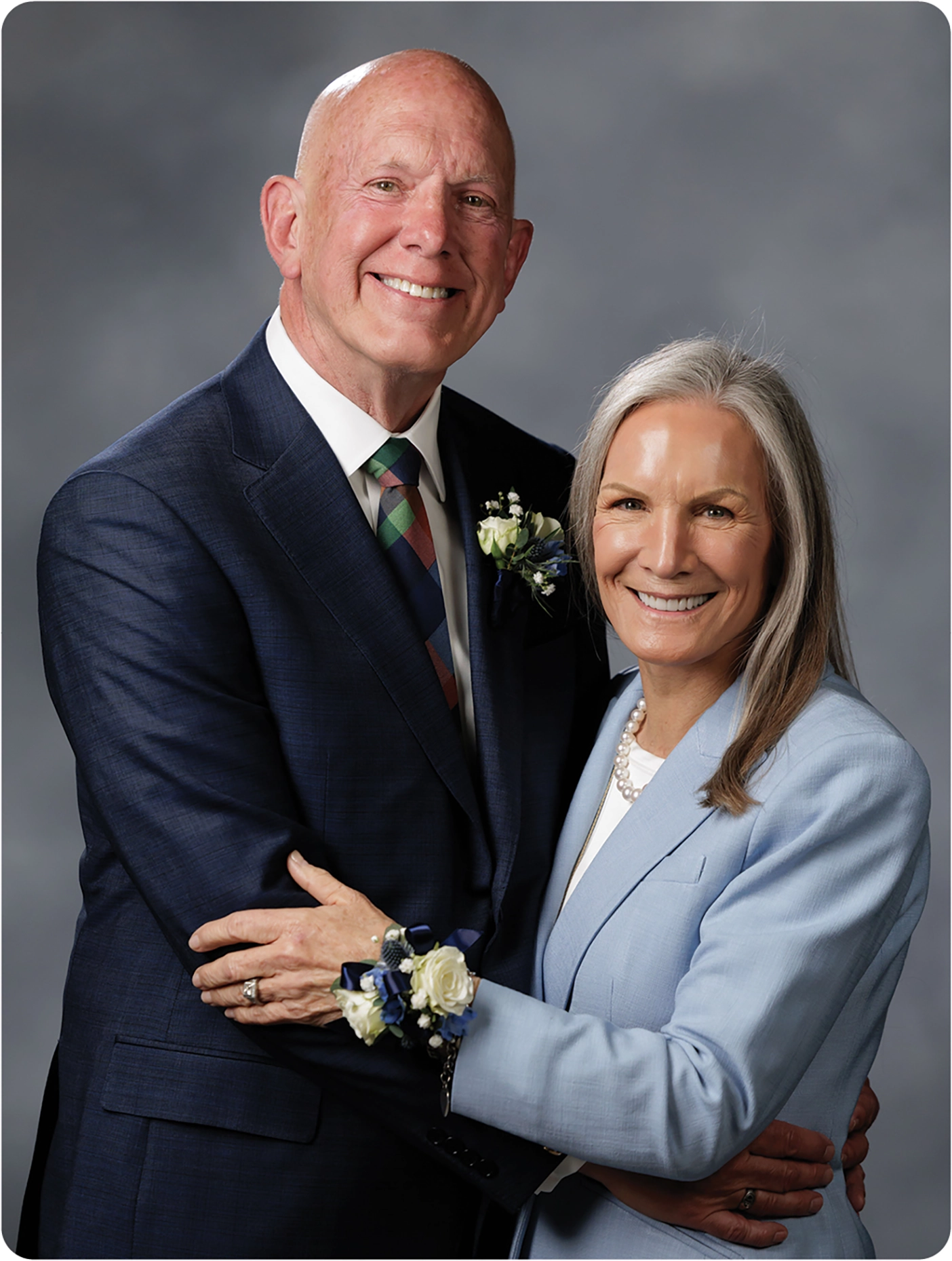
A Truth Learned Early. “Even though I wasn’t raised in the gospel, I knew that I was a child of God. [My family] would go camping on the weekends. Friday after work we would drive at night in our camper. I would lie in my sleeping bag looking out a window at the mountain roads.
“One night, when I was supposed to be asleep, I heard a voice that said, ‘Marilyn, get in the cab.’ So I climbed into the cab between my mom and dad. My dad said, “What are you doing here? Get back in the camper and go to sleep.” I said, “No, you told me to come up here.” And just then a very large bird went flying through the window, shattering the glass right where my eyes had been looking out at the country road. Glass was on my pillow, and the bird was in the sink of our camper.
“I grew to know my Heavenly Father was watching out for me, and that is why I have my eyes today. As a freshman at BYU in 1974, I received my patriarchal blessing, which tells me my Heavenly Father has been kind to me. And I know that to be true.”
Stephen Rizley
A Powerful Family Story. “I grew up going to a wonderful church, but it was not The Church of Jesus Christ of Latter-day Saints. My mother’s father had been a bishop in the Church for many years in southeastern Arizona. One day, in 1923 or 1924, he was out plowing a field when a great big summer thunderstorm came up. He ran under a tree, the only tree in the field, and lightning struck him, straight through his head and out his left leg. It blew both of his boots off, and he fell over into the furrow.
“During that period of time, he had an experience. He went before Heavenly Father and said, “My family is destitute. I can’t leave my wife and my 10 children. I need time to go back.” The water in the furrow stanched the burns and actually revived him. In the meantime, he took a handkerchief out of his overalls. All he could move was his arm, and he lay in the middle of a field waving the handkerchief. The Mangum family was driving in their old Ford a half mile away, and Sister Mangum said, “I hear someone calling, stop the car!” They went back and found him.
“These stories, which my mother told me, opened the door for me to allow the missionaries to teach me.”
Andy W. Reid (BS’82, MS’83) • Head coach of the Kansas City Chiefs
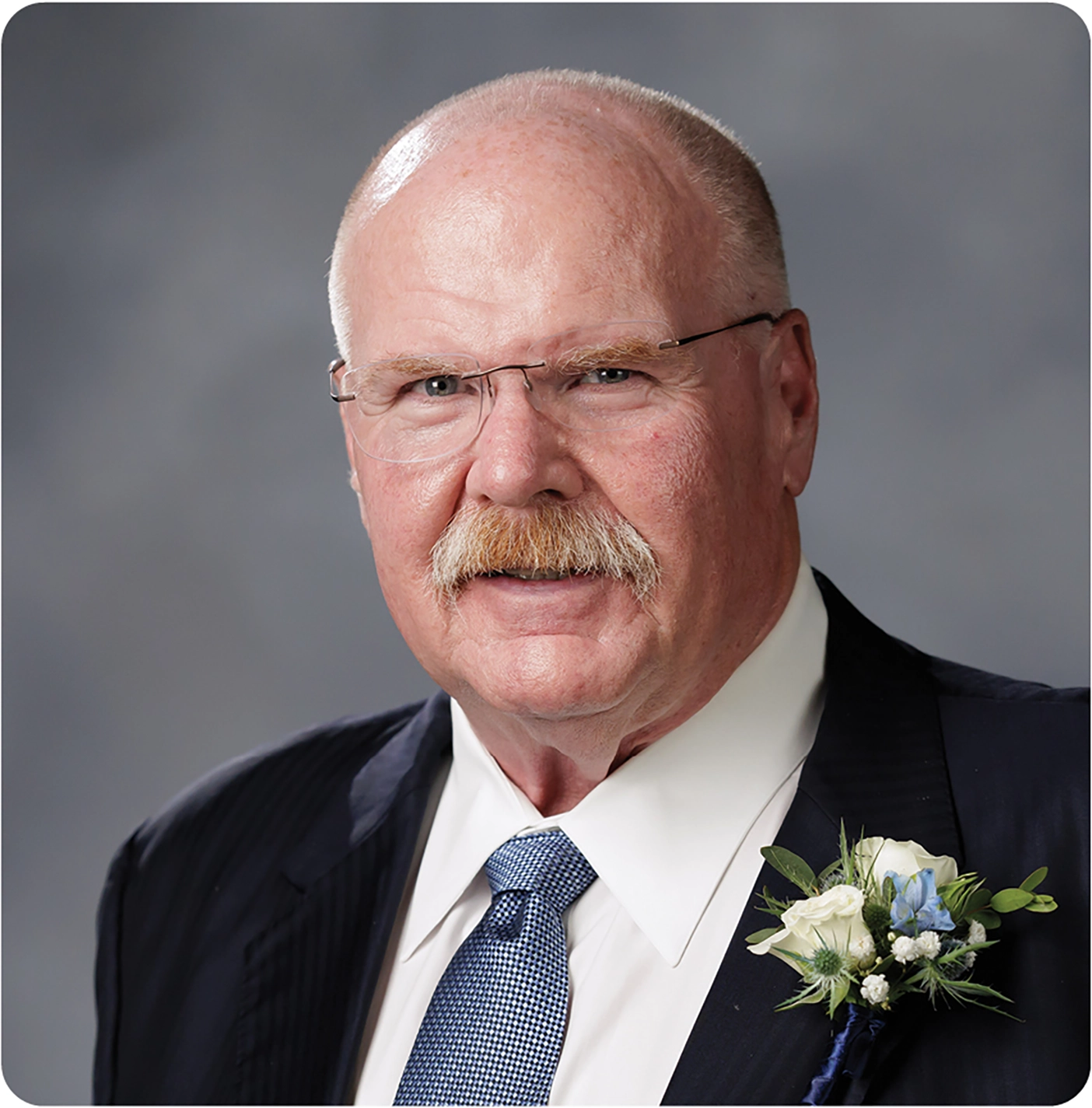
Plays from Anybody. “It’s been said I will take plays from anybody and everybody. It’s for the betterment of the team. It’s to keep people involved. I was the one who started it off. I said, ‘Why can’t we do this [play] within the realm of the lines on the field? Why can’t we?’ I wanted us to use our creativity. We all have a creative side. So I’ve opened that up to players.
“One time there was a janitor and his family who cleaned our building and our offices in Green Bay, and he kept telling me for six years that he had a play that was going to work. So finally I had him draw it up. It looked pretty good. We ran the play, and it worked: we were able to score a touchdown on it. So that was a good lesson when I was relatively young—before I was a head football coach—and as I became a head football coach, I just kept that going.”
Rebecca Richards Rogers (BMu’92) • Founder of the nonprofit Families Mentoring Families
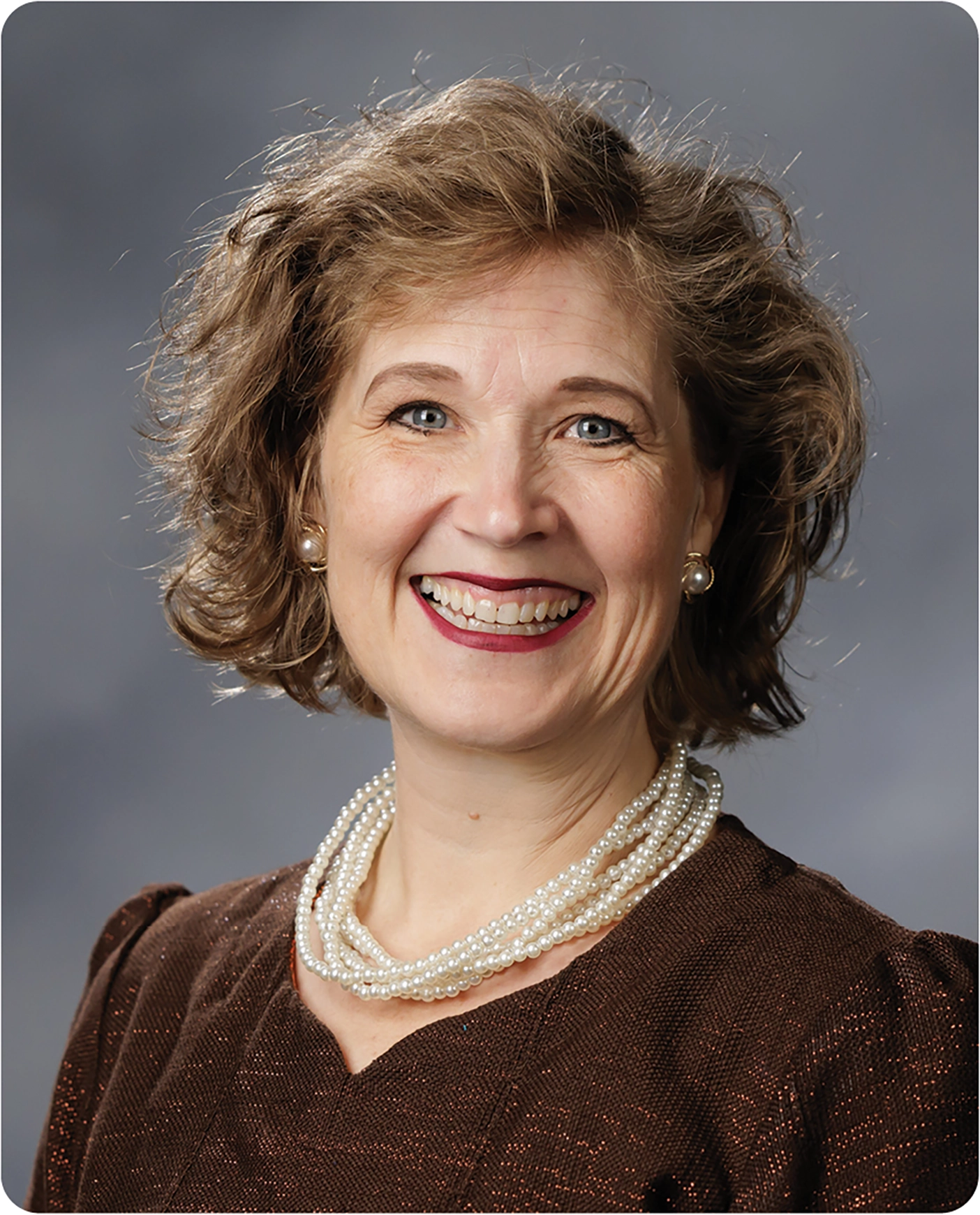
The Power of a Mentor. “My greatest takeaway from BYU was the value of having a mentor. It’s so important to have someone who knows how to do what you don’t know how to do. I was taking music lessons from a BYU faculty member from the time I was 12 years old. She became my second mother. She holds a special place in my heart because she brought me to BYU and she brought me through it, as well.
“I’ve had so many mentors. One of them said, “Even the caboose is better off in a system that’s created for the engine than one that’s created for the caboose.” It has stuck in my mind, and I’ve seen that come to fruition. It’s one of the guiding principles in our organization Families Mentoring Families, which builds literacy and strengthens families in Africa. We can do all of the things to help the most vulnerable, which we do. But the most important part is to develop the leadership in each of us and to develop the God-given gifts we all have in order to fulfill our purpose. I call it the soul assignment—the job that God put us on this earth to do, making sure we have those skills and gifts developed. And a personal mentor is really the best way to do that.”
A. “Rowdy” Gaines • Olympic gold medalist and swimming commentator
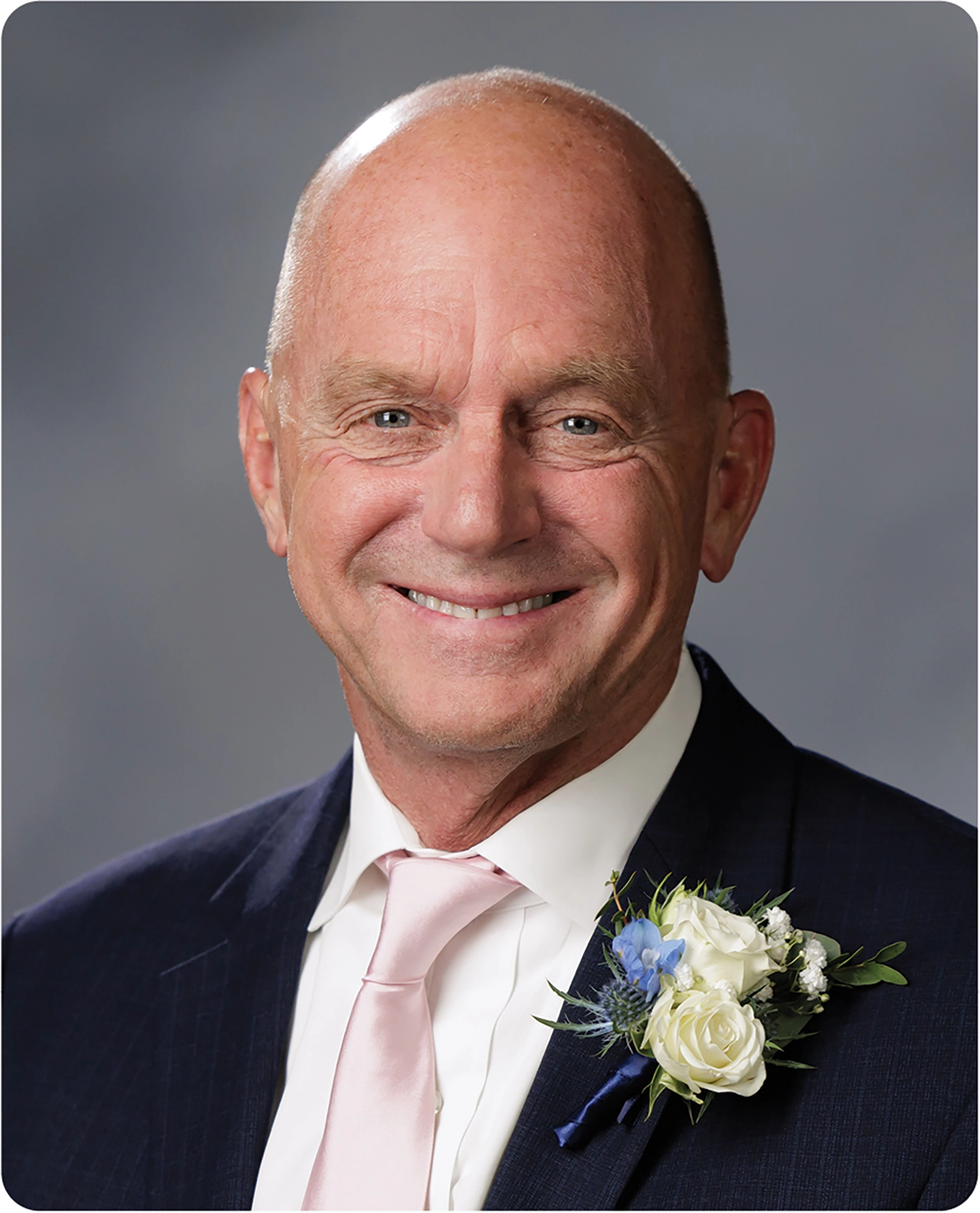
A Lesson in Perspective. “I’ve had a lot of mentors in my life. I won three gold medals in the Olympics. I gave one to my mom, one to my dad, and one to my coach. I could not have done it without them, without their love and their support. I mean, we were a team.
“The mentor who meant the most to me in my life was my coach Richard Quick, who passed away about 10 years ago.
“The day after I won that gold medal in the 1984 Olympics, he came knocking on my door and said, “Time to wake up. We’re going somewhere.” I go, “Oh, no.” I thought I was going to practice. And he takes me to a children’s hospital unit, where we saw . . . a lot of things that helped me understand that winning a swim race isn’t that big of a deal. It really helped me settle my ego down and made me understand that there’s a much bigger purpose in this world than gold medals and blue ribbons.
“Richard Quick changed my life, literally changed the trajectory of my life, and I could not have done what I did both in and out of the pool without him. Not just as a swimmer, but as a person. He taught me how to be a better person.”










